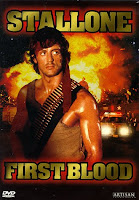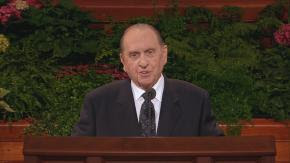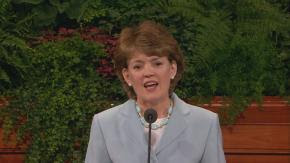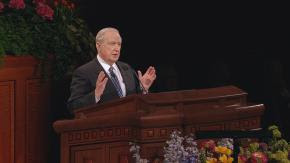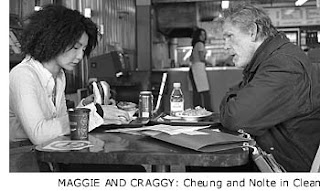
A memory that has had a surprising impact on me was when I was a priest (about 17 years old). Our Stake President was visiting our ward that day. As he walked by me on his way out of the chapel after the meeting had ended, I happened to be lying on the bench. He remarked to my Bishop that I wasn't behaving 'very priesthoodly.' The phrase has stuck in my mind for these years— perhaps partly due to the oddity of the word— but none the less creating a need to define that word. What does it mean to behave in a 'priesthoodly' manner. Somehow my thoughts on the matter have turned to Nick Nolte.
Why have I dedicated a post to Nick Nolte? Has he passed away? No, though I do feel some urgency in what I have to say about him.
I've been thinking about him since a conversation with a friend a few summers ago where Ang Lee's Hulk came up (a movie which, though deeply flawed, we both thoroughly enjoy). My friend mentioned Nick Nolte as one of the great parts of the film, while I thought of his performance as overwrought and lacking variation or depth. But my friend, whose opinion I greatly respect, re-asserted Nick Nolte's greatness.
Since I was little, when one of my favorite movies was The Three Fugitives where Nick Nolte and Martin Short played opposite each other, I have considered myself a fan. But I have recently been deeply moved by two of his performances in particular Olivier Assayas's Clean, and the Terrence Malick produced The Beautiful Country. In both features Nolte's character could hardly be considered the leading role, but at the end of each it is his performance which stayed with me.
In academics as well as popular criticism actors are rarely discussed in comparison to the roles behind the camera. Partly because it's so difficult to pinpoint, partly because it's so difficult to discuss, but this doesn't lessen the role actors play. Since I read Dave Kehr's entry on Charleton Heston a few weeks ago, I've been trying to reevaluate this, reflecting on careers of great actors like Brando and Nicole Kidman especially. I feel like I've gained a new pair of eyes
and its with these eyes that Nolte's performances hit so deep.
Those performances of Nolte's seem to have everything with the priesthood. For some years, I've been concerned for various reasons about the state of masculinity in our ever-changing modern world. I've said it many places but I'll mention it here that I feel that Edward Albee's American Dream trilogy (as I refer to it: The Sandbox, The American Dream, and Who's Afraid of Virginia Woolfe?) to be the most important piece of American literature that I know of. It has everything to do with the priesthood, I believe. The structure of these plays is similar (as it is with many of Albee's works such as the more known A Delicate Balance): A domineering wife and mother, an ineffectual, passive, and frustrated father and husband whose marriage is defined by abuse, neglect and dysfunction. The child is either non-existent or heartless and impotent, while sometimes a grandmother is featured and the only voice of wisdom. They paint a picture of a 'post-feminist' world, where fathers are no longer the head of the household because they are unable, and the mothers rule in anxiety and tyranny. This all, like Miller's masterful Death of a Salesman, is tied to the death of accomplishment, of the American Dream, of the future generations.
On the other hand, images of masculinity like Scorsese's paint masculinity as violent vigilantes, incapable of true intimacy or fidelity let alone lasting happiness. Which leaves us with men and patriarchy as evil on both fronts. Either slothful and ruled by fear, or violent and ruled by fear. A pretty bleak picture all around.
Yet Nick Nolte's performances here seem to answer all of this.
In Clean, a film I deeply love for its subtlety and masterful direction, Nick Nolte is Maggie Cheung's (of fame In the Mood for Love fame in the US, as well as Assayas' former wife) father-in-law after a tragedy has occurred. Nolte's choices as an actor make not only for a more engaging performance, but for a clearer, less marginalized view of masculinity. There is wisdom and concern in his every gesture which plays off his natural 'gruffness' and stoic demeanor. In this role he embodies paradox and the qualities I believe define being "priesthoodly": he is quiet, dignified, not puffed up, devoted, humble, hard-working, determined yet considerate, willing to adapt, yet firm without anger, cheerful and calm, naturally searching for the positive. I hope that as the years continue to come that I might be the type of man portrayed here. I would trade the last twenty minutes of this film for every one of Scorsese's pictures. I hope I wouldn't have to, because there are moments of sheer genius in Scorsese's oeuvre, but if put to it, I would. But these are qualities aided by the script, but created, I'm convinced, by Nick Nolte. What kind of life has he lived that he knows such things. Might our films be greater if we knew these things better as well?

The next performance is even stranger to mention, since though Nolte's picture is on the cover of the DVD case, he appears for the first time less than 15 minutes before the end of the picture. Here again, he plays a father, but more detail might affect the viewing of any who haven't yet seen it. But, again, I would trade these 15 minutes for hundreds of other films. A 15 minute role in a minor, yet thoughtful production hardly qualifies actors for awards, but this might be the best piece of work I've seen from an actor for years.
Patriarchy is at the very heart of what our church stands for. Without the patriarchal order, not only is the church not true, but neither is the gospel. This was a hard thing for me to accept (and I guess at points, it still is) because so many male figures in media and my life alike, are either ineffectual, or tyrannical. If me lying on a bench for a moment was unpriesthoodly, than these two images most certainly are. But that these two extremes are characteristic of what men are and should be is a lie and I am convinced its source is darkness. Patriarchy is not tyrannical, though its use has been in more instances than can be mentioned here. How much evil has been committed by men who justified their works by power!
But there men who defy tyranny by their ability to love and love as Christ would. There are men whose concern is the good of others and who fight everyday for their families— to protect and provide. Might this be more urgent to discuss in our literature and our film than searching for the next "Mormon teen crush'? I just want to say that I struggled with this, especially as I've been more aware and concerned with how women are undermined by male-driven systems. And I know that I am talking about very big issues, and using very small words, but I also know that the order of God's church, and the order His church teaches about families, is the order he has designed and ordained. And I know that's His way because I questioned and I have now got my answer. I guess what I'd like to say is, that if you haven't got yours, keep searching, and it will come.
I recently read a post and dozens of comments on Feminist Mormon Housewives on a post entitled "On Patriarchy and Patriarchs" that discusses this perception. I was extremely impressed with the thoughtful nature of so much of the writing there, but many other comments testified of pain and frustration on the topic. I know that this is a sensitive and difficult topic, and I hope nothing I've written here betrays that. I feel that a large part of the responsibility to discuss and cultivate these topics lies on LDS cinema.
Let us take these performances as models and again, be more thoughtful in our media.
